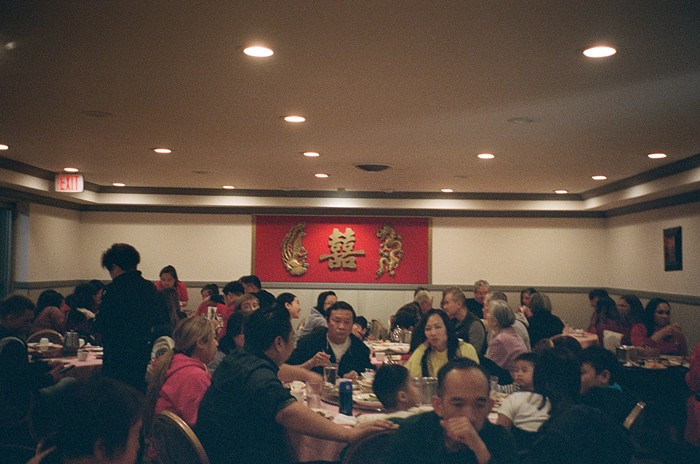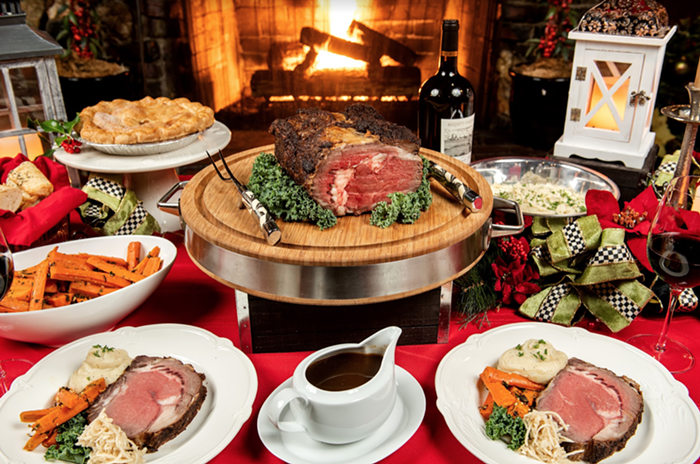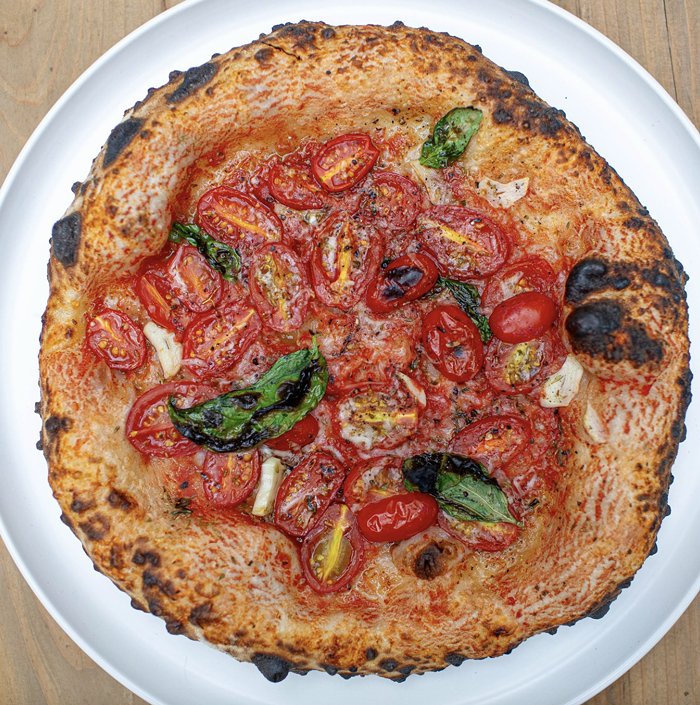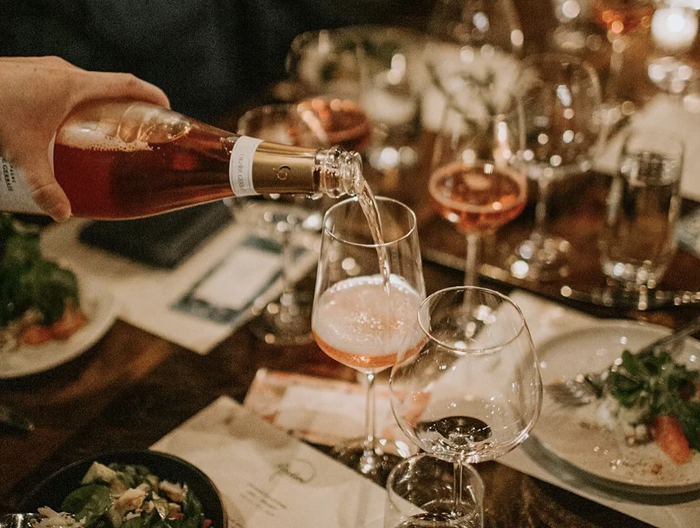“Why are you eating by yourself?”
The woman held her one-year-old grandson on her right hip, giving the chunky boy a boost when he began to slide. Her name is Lai Szee, but she also goes by Nancy. A claw clip pulled back her gray and black hair, showing off glasses and a sweet, round face.
I told Lai Szee I moved to Portland in the summer and haven’t met other Chinese people with whom to celebrate Lunar New Year, a 15-day East Asian festival marking the arrival of spring and the first new moon in the lunisolar calendar.
I did not want to drag my white friends into celebrating a holiday they do not understand, either. I’ve watched them visibly step out of their comfort zone to eat my comfort food with me, maneuvering their chopsticks with resilience and taking their first bites slowly, with seeming caution. They ask me what each dish is. I wonder why none of my English descriptions of my favorite foods—“um, it’s turnip cake mixed with dried shrimp and dried sausage”—sound all that appetizing.
“Chinese New Year is supposed to be celebrated with other people,” Lai Szee said.
In the modest-sized dining room of Powell’s Seafood Restaurant, the 60-year-old grandmother was celebrating with a party of 20 given and chosen family, split between two round tables.

Lai Szee said she immigrated with her family to Portland, from Hong Kong, as a teenager, and I told her I’m also from Hong Kong. She said she hadn’t been back in “oh god, many years,” but she hopes to visit soon with a travel group of other elderly widows.
The waiter arrived with my dishes: Long stir-fry noodles for a long life. Half a roast duck—meat symbolizes health and prosperity. Chinese broccoli stir-fried with garlic and oyster sauce, because mother said every meal needs a vegetable.
Lai Szee said she had to leave me then or my food would get cold. “If we had more room, I would say you should sit with us.”
With my chopsticks, I reached for the duck leg, the part of a poultry dish an elder would put on a child’s plate as a gesture of affection.
In the Wong family group chat all members are in Hong Kong except myself. Shared photos show a Lunar New Year's Eve dinner in my aunt’s apartment and a celebration the next morning at my grandpa’s. Chinese families traditionally visit their elders' homes on Lunar New Year's Day to collect red envelopes of cash and eat nin go: a pan-fried sweet and sticky rice cake.
In the photos, my grandpa looks older than I remember. He tells me he mostly stays home these days because he can’t walk much anymore.
Since moving to the United States, in 2009, I’ve lived in cities that became home and found friends who love me almost like family—and whom I certainly get along with better than my family.
But on days like Lunar New Year, I feel very far away from home and my family.
I’m visiting Hong Kong soon, where I will eat home-cooked meals and street food I cannot find in Portland and feel my body relax to the sound of my first language. I will also feel out of place, struggling to articulate complex thoughts in my rusted Cantonese or flinching when I hear a comment that grates against the progressive values I adopted in the US.
An immigrant eventually becomes an amalgamation of identities and cultures, never belonging to one place, always yearning for the familiarity of somewhere else.
I refilled my cup with hot tea, the bitterness cuts the greasiness of the food.

2023 welcomes the Year of the Rabbit. While on vacation last month, my mother put her hand on my hand, at the breakfast table, and told me I have a better year ahead.
“I didn’t tell you this, but the Year of the Tiger was supposed to be a hard year for you,” she said, eyebrows raised.
The Year of the Rabbit is expected to be a time of rest and introspection, following the Tiger’s period of action (I started a new job!), courage (I quit my job!), and impulse (NSFW!).
Folklore binds generations individually shaped by time and innovation, offering a shared identity rooted in agrarian culture. Farmers used the Chinese lunisolar calendar, which accounts for both the moon’s orbit around earth and earth’s orbit around the sun, to determine planting and harvesting. Each month begins with a new moon.
Seeing that I was putting on my jacket, Lai Szee reminded me not to forget my leftovers. She ate beside her grandson, who sat in a high chair between his two grandmas. Lucky baby.




















